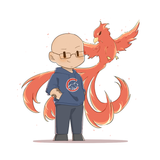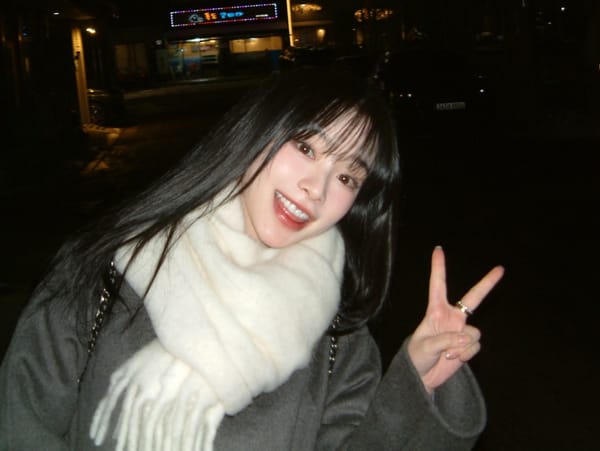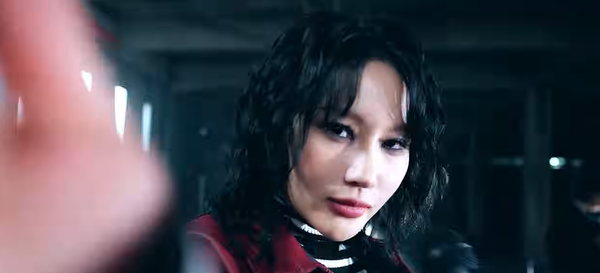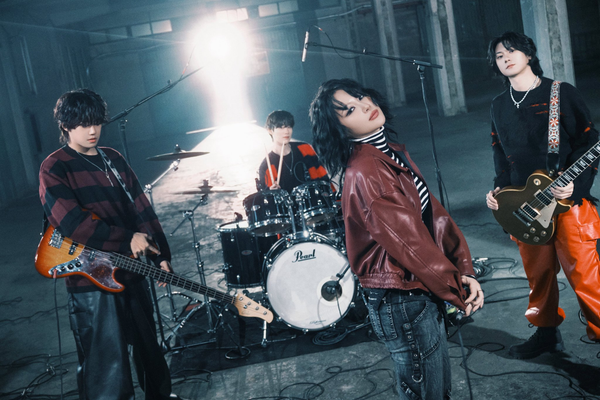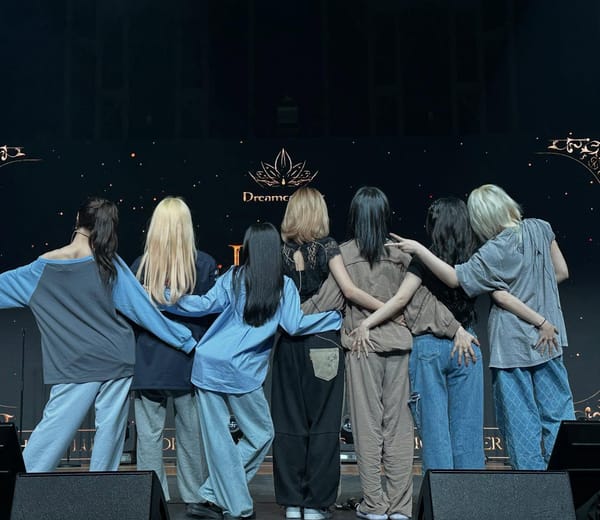Seven Years Of Dreamcatcher - One Of K-Pop's Best Underdog Stories
On Dreamcatcher's 7th anniversary, it's time to take a look back at how they overcame the odds to become one of K-Pop's most unique groups.
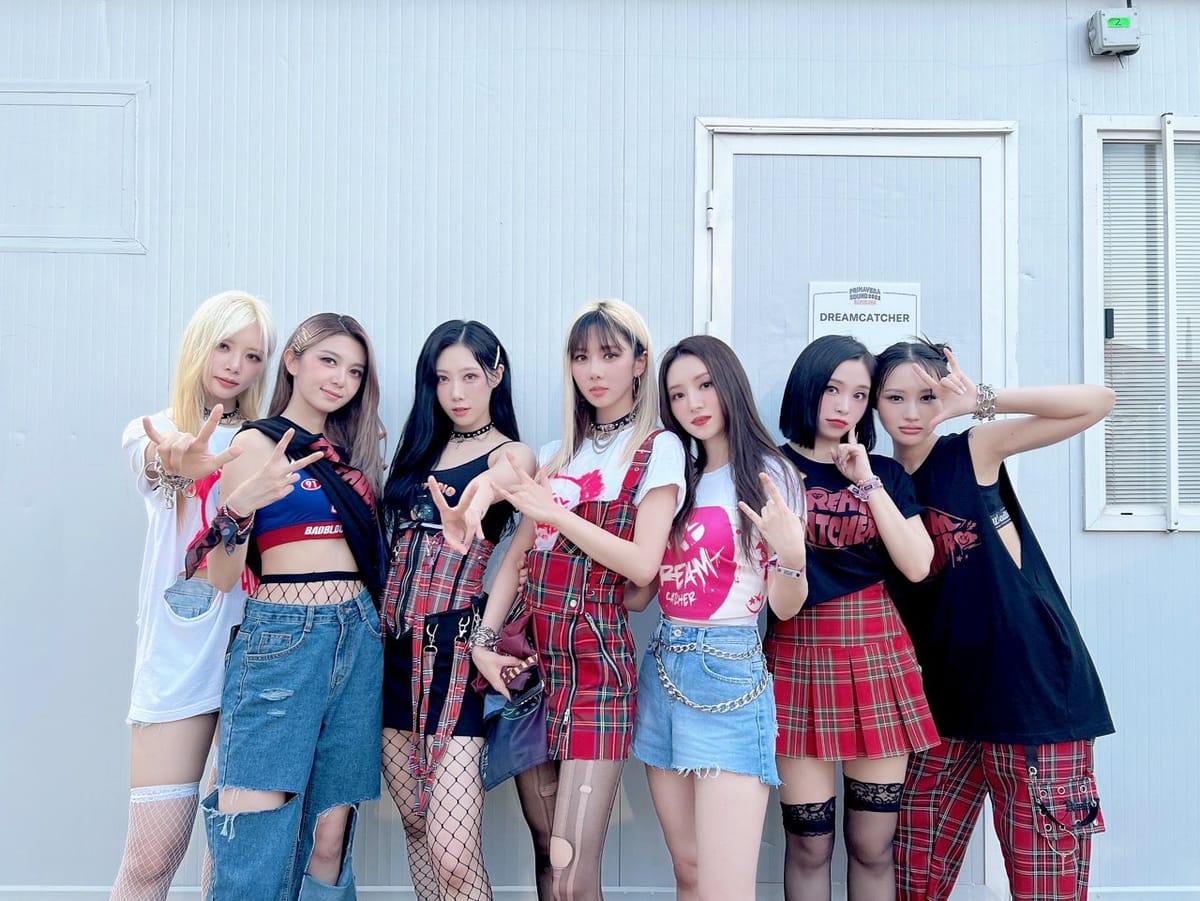
I've been a K-Pop fan for a long time - since the days when KARA told fans to "Step it Up, Step It Up", Girls' Generation was dazzling audiences with catchy, colorful tunes like "Gee", and "The Chaser" made me take notice of Infinite's crisp and badass choreography. Two of the reasons I've stuck around for so long are the following
- The sheer variety and amount of groups, soloists, and acts
- The seemingly perfect mix of music, choreography, and visual presentation
It's because of those two things that I think the industry is endlessly appealing to fans, but also highly competitive and extremely volatile. According to the Kpopping.com database, 71 K-Pop acts debuted in 2023, and there's a pretty good likelihood that a decent number of them may end up disbanded or in hiatus within three years. To give you an idea - of the 230 acts that have debuted since 2020, roughly 21% of them are now disbanded, with acts that debuted in 2020 having the highest percentage at 38%).
Those are pretty scary odds, and they get even scarior when you take the remaining active groups and think about which ones you can actually remember. Groups jockey not just for attention, but sometimes, for survival.
When I think about why I'm drawn to lesser-known acts in K-Pop, those numbers, and the work that K-Pop idols put in despite that, are a big reason. It's probably why when I see a group that can beat those odds and do so in their own way, it's pretty encouraging, and it makes me respect them a hell of a lot. In other terms, you could call it an underdog story, and whether it's in sports, entertainment, or anything else, they're one of the most endearing narratives.
The Oxford Learner's Dictionary defines an underdog as "a person, team, country, etc. that is thought to be in a weaker position than others and therefore not likely to be successful, win a competition, etc." Today, I'm here to tell you that Dreamcatcher, a K-Pop group that as of this writing has made it to their 7th year despite the metrics saying that might not have, fits the bill perfectly - and why if you're not familiar by them by now, you might want to change that. Four years ago, I wrote that their mostly unsung rise to sustainable prominence was just starting to get press, and the subsequent years and breaking of K-Pop's "seven year curse" have only shown they've achieved even more to make people aware of their tale in the industry.
Let's take a look at some of those reasons.
Their rock/pop music core and darker concepts and stories run counter to convention in the K-Pop industry.
Obviously, a K-Pop act starts with its music, and for Dreamcatcher, they have, since the beginning with 2017 debut track "Chase Me", marched to the beat of their own drum by choosing as their music style what Dreamcatcher Company (then Happyface Entertainment) CEO Lee Joo-won would call "rock base, with a pop-metal style". While there have certainly been more popular groups that have dabbled in the rock genre for their songs - (G)IDLE's "Tomboy" and Tomorrow X Together's "LO$ER=LO♡ER" come to mind), Dreamcatcher was arguably the first K-Pop group to make it a part of their core identity and sound.

It's important to realize how significant this choice was. According to the above chart by Statista, tracking preferred music genres in South Korea by gender, in mid-2023 Rock didn't even crack 10% on the scale. In general, South Korea's rock scene has seen a history of mostly being underground, with shades of rock/pop acts making it into the public eye only through occasional novelty shows such as MNet's "Great Seoul Invasion" or in events, such as the Jeonju Ultimate Music Festival (an event that, to no surprise, Dreamcatcher has participated in multiple times).
But being different, despite the daunting prospect of selling a rock-style K-Pop group to a potential audience, was the point. It was, to Lee Joo-won, a focus on providing something that nobody else was doing, in a musical genre that wasn't guaranteed success.
As if that wasn't enough, Dreamcatcher stacked on top of their non-traditional music sound an equally different and non-standard presentation. Concepts, which refer to the overall thematic style, message, or unifying visual elements of a particular group or album, are a critical part of the K-Pop package. To match their hard-charging, aggressive rock/pop sound, Dreamcatcher also engaged in a "dark" concept, choosing to portray themselves as seven women cursed into becoming the embodiment of nightmares, set against a horror-like story. In the midst of the heyday of the surreal yet still brightly catchy bubblegum pop portrayal of Red Velvet's "Red Flavor" or the massively popular cute and peppy energy that TWICE was exuding with "Signal", Dreamcatcher was going down the path less traveled (or in this case, barely at all), eschewing what was popular for what was undeniably made their own. If that isn't an underdog story, I don't know what is.
Augmenting their fledgling discography and dark image with a set of covers meant to show off their ability to execute and perform all kinds of songs up and down the rock genre, Dreamcatcher, from the beginning, put themselves in a position that may have had some uncertainty or even unlikelihood to succeed. But as they matured their music and their concepts, moving from hard rock to hybridized rock/pop, and their story from Nightmare to Dystopia to Apocalypse and finally to the current Villain arc, people began to take notice. To my fellow K-Pop fans who aren't as familiar with Dreamcatcher, if you want a break from the usual, this is the group to listen to. Their wide-ranging discography of musical styles drift not only into rock but into genres that range from synth to city pop to EDM and more. It's this combination of unique, "alternative" K-Pop that has gotten them their sustained fanbase.
They're resilient and have survived many obstacles and challenges.
After consuming so much K-Pop and watching various groups over the years, from what I can see, overcoming difficulties and getting over hurdles is baked into the job. Given that potential idols commonly work for years to audition, be accepted into a company, train, and eventually (maybe) debut, this isn't a surprising conclusion. But I think that Dreamcatcher's narrative is especially distinct, in that what was placed before them, what they have gotten past, and where they've ended up have all crafted a narrative that shows why they've been seen as beloved underdogs.
Much of that is because they weren't always known publicly as Dreamcatcher, as evidenced by the above video - their last as MINX.
MINX was, for the majority of Dreamcatcher's current members, their first crack at the K-Pop industry. Debuting in September of 2014, members JiU, SuA, Siyeon, Yoohyeon, and Dami dropped debut title track "Why Did You Come To My Home", a high-energy tune with an accompanying brighty-colored music video. The follow-up, 2015's "Love Shake", a remake of labelmate Dal Shabet's track of the same name, was just as pastel-tinted and cute concept-coded.
Looking at these past videos MINX did everything seemingly right. This period, after all, was the realm of equally rainbow-filled tracks like Orange Caramel's "Catallena" and beach environments like Girls Generation's "Party" - songs that were popular among the South Korean general public. For all intents and purposes, what MINX was doing should have been a surefire hit.

But maybe that was part of the problem. Seemingly unable to stand out in a crowd of better-funded, more visible acts performing similar concepts, MINX's sales for "Love Shake" never got past 2,000, and the group's extended hiatus, as a result, threatened to place them on the road towards disbandment.
"Just thinking of then, my eyes would turn red. During that period, all of the members (MINX), fell into a slump severely. I refused to and hated to listen to any kinds of songs. Every time I laid in bed, I cried a lot. I did not want to say this, but at that time, I would go to the cyber cafe with Yoohyeon to play “League of Legends” to relieve stress." - Siyeon, speaking about MINX's hiatus in an interview with BNT News, 2017
Though given a second lease on K-Pop life by their CEO through their novel rebirth of rock/pop core and darker concept, success was by no means guaranteed. Very few groups re-debut and even fewer seem to do so successfully (see: Pristin, re-debuted as HINAPIA only to disband in 2020 or Good Day, whose original lineup have members that have rebranded twice). Bolstered only by a small, dedicated core of MINX fans, Dreamcatcher's debut single release "Nightmare" sold a mildly more successful 3,576 copies. Undeterred, the group entered into a whirlwind of debut year activity, almost instantly entering promotions for next release "Fall Asleep in the Mirror" and then keeping the momentum going with a third comeback in the summer with "Prequel". The resulting sales (climbing to 9,000+ and then over 11,000+ for both releases) seemed to show the effort was paying off.
Having to re-debut, work with a music style nobody was doing, and defy convention by eschewing standard concepts weren't the only things that Dreamcatcher has overcome over the past seven years. An aborted competition show appearance in favor of another risky, but potentially unique decision to begin touring early to build their fanbase, the initial limitation of opportunities to appear on popular shows and variety channels due to their small company and need to build their group footprint, the temporary departure of member Handong to return home and find her musical identity via participation in China's "Youth With You" (and her subsequent inability to return right away due to the COVID-19 pandemic), the recent surge of monster rookie girl groups in 2022 and 2023 adding to the competition for attention and relevance - the list goes on.
Through all this, however, Dreamcatcher has persisted. There's a reason they are one of a handful of still-active 3rd generation girl groups and as of this writing one of only two girl groups to achieve 1 million sales cumulatively on the Circle/Gaon music chart without being backed by one of the major "big 4" K-Pop companies (HYBE, YG, JYPE, and SM). Aside from their work, their resilience and dedication to their niche in the industry has become well-respected and recognized by both their peers and by the K-Pop fandom at-large. It's something that can't be stated enough, considering where they came from and how uncertain the chances of sustainability and success were back on that mid-January Friday the 13th in 2017. Underdogs often start from a position of potential disadvantage, and for Dreamcatcher, the circumstances all match.
As K-Pop's "stair idols", Dreamcatcher's success and sustainability have come gradually instead of all at once.
In Dreamcatcher's 3rd fan song, "REASON", released in 2023, the imagery presented in the animated portion of the music video depicts the group ascending a long spiral staircase, oftentimes stumbling and struggling, only to be lifted up by a depiction of a figure meant to symbolize their fandom. It's meant to visually show how the K-Pop industry and fans have seen Dreamcatcher as the "stair idols", those that achieve success through slow and steady progress.
Underdogs often have to work a bit harder to garner success, partly because they may not have access to the same resources that others do. This is most certainly the case with Dreamcatcher's company, Happyface Entertainment (later re-named Dreamcatcher Company), which was armed mostly with prior funding from its CEO and mild success from previous girl group Dal Shabet.
I want to make it clear that I have nothing against groups that start out backed by big K-Pop companies or who have more given to them initially. Any group in the K-Pop industry able to train, debut, and sustain their success deserves their place, and the realities of how things work inevitably mean that there are differences in what K-Pop groups have access to in order to succeed. But I do think that part of the reason why we can appreciate Dreamcatcher's story, and view them as underdogs, is because they started from nearly nothing, and have built something, brick by brick, release by release, as opposed to the comparitively meteoric rise of many other groups and acts.
Despite their humble beginnings, Dreamcatcher managed to garner at least some attention initially. Having chances taken on them and their non-traditional presentation by outlets like Arirang K-Pop and Fact in Star, frequent and early allies to the group, were boons. Even though as of this writing, Dreamcatcher has yet to get on commonly popular variety shows like Amazing Saturday or Knowing Bros, that hasn't stopped them from steadily climbing the variety ladder in general. They've become regulars on well-known shows and video channels such as Weekly Idol and Idol Radio, and you can almost always count on every comeback having a new partner to work with for more content, such as Spotify or Esquire's Korea channels.
The place where I think we see Dreamcatcher's "stair idol" type success the most, however, is in K-Pop milestones. Whereas more popular or better-resourced groups might see these show up a lot more quickly, for Dreamcatcher they have almost always shown up later in their careers. Some of the ones that come to mind include:
- First generation fanclub with fanmeeting (above, 2019, two years after debut)
- Official lightstick (2021, four years after debut)
- First brand ambassadorship (2023, six years after debut)
- First long-term solo radio/hosting opportunity (2021, five years after debut)
- First awards show with an award (2022, five years after debut)
and of course, the one that can't be missed:
- First Music Show win (2022, five years or 1,923 days after debut as Dreamcatcher/2,741 days after debut as MINX).
This last I think is worth mentioning for a variety of reasons, and not just because it's the longest gap between debut and a music show win for a lineup with no changes. I've written extensively about the long history of Dreamcatcher's quest to acquire a music show win trophy, and while the necessity of a win to ensure a group's survival is long past a requirement, from a personal achievement standpoint this was very important to the group. They'd made efforts to set expectations for fans and advised them not to be upset, disappointed, or otherwise unhealthily obsessed with this evasive accolade. They were so good at doing this even I made the mistake, at the time, of thinking that they didn't want to win a show badly. I'm not afraid to admit I was wrong - but even the group, it seemed, put a 1st place music show win goal to the side in part due to disappointment of falling short of it. But once it happened, there was no doubt of its personal significance.
There's an interview from 2022 with JiU regarding this win, and about Dreamcatcher's journey in general, which encapsulates their identity as K-Pop's "stair idols". We heard about JiU's early days with MINX, the very honest feelings of depression and sadness they felt during the long hiatus after their initial debut, and the struggle of wanting to be recognized. And while Dreamcatcher, even today, is on an uphill climb to have the kind of S-tier recognition reserved for groups like NewJeans, IVE, and their generation peers Red Velvet or TWICE, I do think that their continuing grind towards the top hasn't gone unnoticed, especially in the international K-Pop community, where Dreamcatcher draws most of their fan support.
Whether it comes from people like me, who regularly follow the group closely and generate content about them, or from those who only peripherally know about the group and their unique style and journey, there's a great deal of respect there. That recognition for an underdog who continues to try to be better and climb higher, no matter how hard it might seem, makes the results Dreamcatcher has achieved even better to experience. It is, essentially, K-Pop on hard mode, and Dreamcatcher has made it into a science if not just straight-up motivation.
Dreamcatcher's legacy will be that they've helped make "something different" in K-Pop acceptable and a path to success.
Like many Dreamcatcher fans, I occasionally think about what place the group has in the history of K-Pop. Seven years in, and having had the fortune of an early renewal in 2022, the group is among a rare set of girl groups that have simultaneously stayed together and negotiated new terms for themselves.
No one knows how much longer we'll have Dreamcatcher, and to anyone nervous about how long their renewal period is or when they might call it quits or move on, I always say not to worry about how long we have them, only to enjoy and support them for however long that is.
There is, of course, still room to grow for Dreamcatcher. While seemingly sustainable and stable, and with a consistent set of sales despite some arguable peaking in fanbase numbers, higher heights can certainly still be possible, either through virality, new opportunities, something that hits with the South Korean general public, or simply through the persistent effort that Dreamcatcher has put in since the beginning.
To a certain extent, however, it doesn't seem to matter whether Dreamcatcher blows up a ton in popularity or not. That's because Dreamcatcher has already created a legacy for themselves in the industry, with a place that was carved out from their creation. Moreso than being a group that does rock/pop, or has some of the most interesting storytelling for concepts or any of the other things that distinguish them from other K-Pop groups, Dreamcatcher has made it OK and even sustainable to do something outside of the norm in the industry.
For evidence, you need only look at younger groups. While perhaps not exactly direct influences, the fact that Dreamcatcher are now respected seniors to a bunch of subsequent groups also attempting to break the normal mold of concepts and music styles shows that companies believe that the kind of path that Dreamcatcher walked can be followed.
Groups like Purple Kiss, PIXY, Billlie, and more form a new generation of groups that, despite running counter to what is popular, have confidently and boldly pursued non-traditional music paths, backed by companies that believe in creating something unique. Even the "big 4" companies, with groups such as highly experimental "mixxpop" group NMIXX from JYPE and low-fi 90's throwback sensation NewJeans, seem to recognize the value of innovating over standardizing. At the risk of overusing a K-Pop meme, Dreamcatcher arguably helped pave the way by proving it can be done.
Meet our Rock digital cover stars @hf_dreamcatcher.
— Rolling Stone India (@RollingStoneIN) May 9, 2022
Dubbed as the face of Rock in K-pop, #Dreamcatcher discuss their artistic odyssey and how employing the power of rock helped them convey some of the most gripping concepts in K-pop. #KMusicSpotlight
Pre-orders begin soon! pic.twitter.com/nnXULgpWZ9
And if that wasn't enough, recent achievements, such as being the first K-Pop act to appear at the well-regarded, highly-attended Primavera Sound festival, being dubbed "the face of Rock in K-Pop" by Rolling Stone's India division, and doubling their music show win count with "BONVOYAGE" show that Dreamcatcher is still not done with adding to the argument that not following convention in the K-Pop industry can work. And with both "BONVOYAGE" and "OOTD" from 2023, that bold experimentation extends even to their own music, which has changed and evolved to reflect the members' talent and skills growth.
The best part of a good underdog story is watching the underdog ultimately succeed in one way or the other, overcome odds and doubts, defy expectations, and rise above them. It seems highly appropriate to me that one of Dreamcatcher's best recent B-sides is titled "Fairytale", as that seems to be an apt thing to call the arc of Dreamcatcher's narrative. Even though they're less underdogs and have long since stopped being underrated, the group's seven years show that they've never stopped appreciating the journey to get there - and neither should you.
